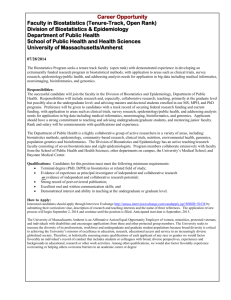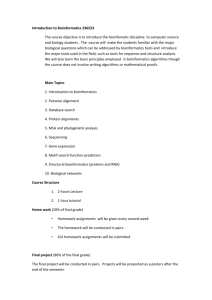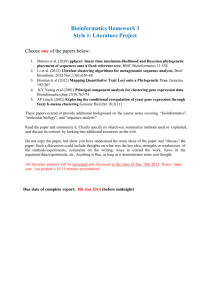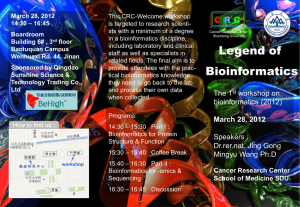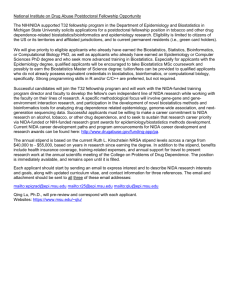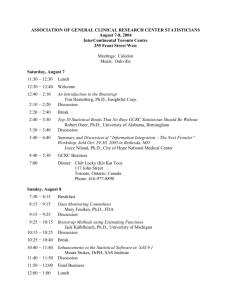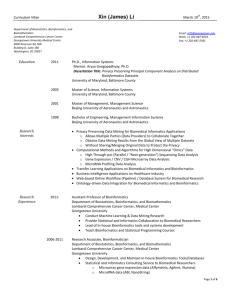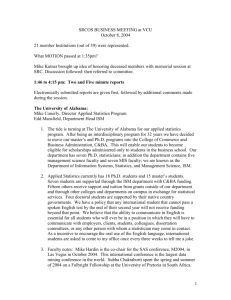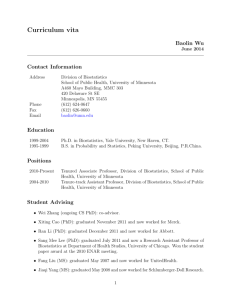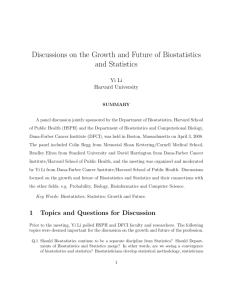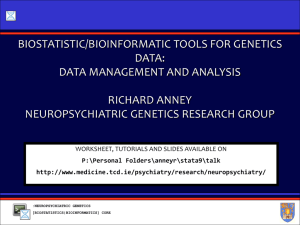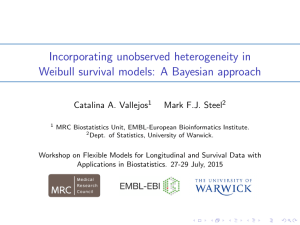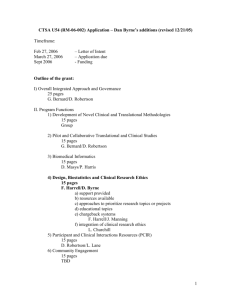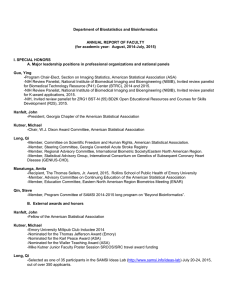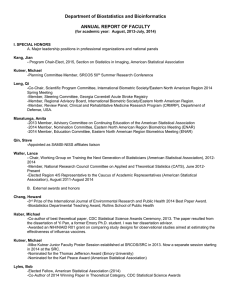Department Philosophy Statement - August 2004
advertisement
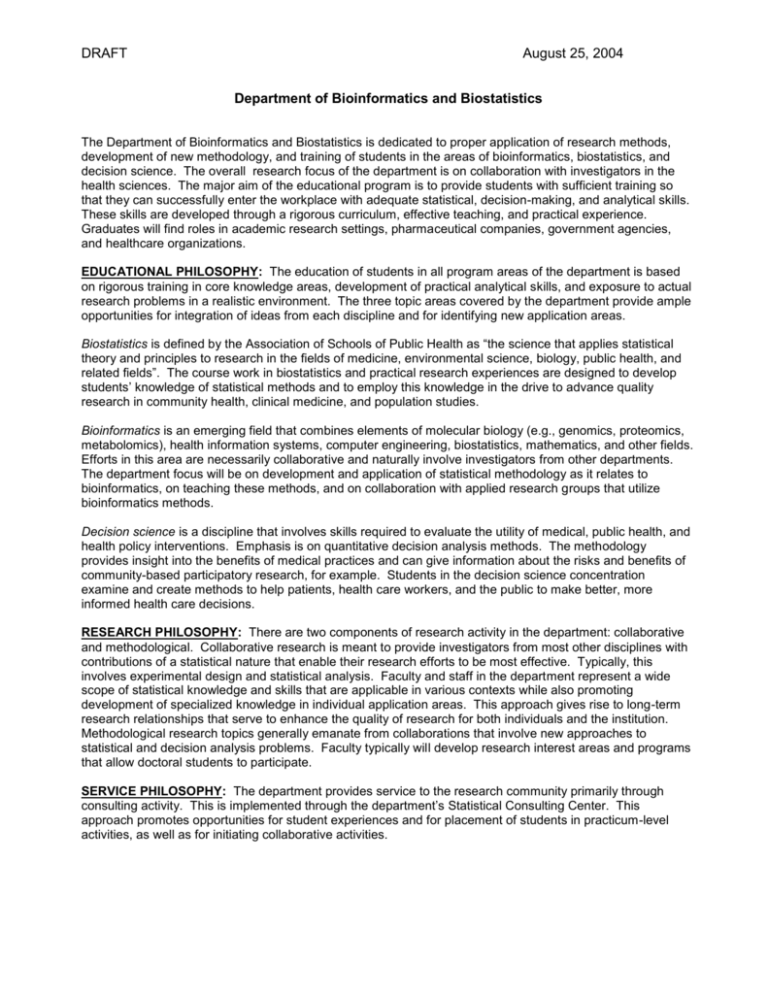
DRAFT August 25, 2004 Department of Bioinformatics and Biostatistics The Department of Bioinformatics and Biostatistics is dedicated to proper application of research methods, development of new methodology, and training of students in the areas of bioinformatics, biostatistics, and decision science. The overall research focus of the department is on collaboration with investigators in the health sciences. The major aim of the educational program is to provide students with sufficient training so that they can successfully enter the workplace with adequate statistical, decision-making, and analytical skills. These skills are developed through a rigorous curriculum, effective teaching, and practical experience. Graduates will find roles in academic research settings, pharmaceutical companies, government agencies, and healthcare organizations. EDUCATIONAL PHILOSOPHY: The education of students in all program areas of the department is based on rigorous training in core knowledge areas, development of practical analytical skills, and exposure to actual research problems in a realistic environment. The three topic areas covered by the department provide ample opportunities for integration of ideas from each discipline and for identifying new application areas. Biostatistics is defined by the Association of Schools of Public Health as “the science that applies statistical theory and principles to research in the fields of medicine, environmental science, biology, public health, and related fields”. The course work in biostatistics and practical research experiences are designed to develop students’ knowledge of statistical methods and to employ this knowledge in the drive to advance quality research in community health, clinical medicine, and population studies. Bioinformatics is an emerging field that combines elements of molecular biology (e.g., genomics, proteomics, metabolomics), health information systems, computer engineering, biostatistics, mathematics, and other fields. Efforts in this area are necessarily collaborative and naturally involve investigators from other departments. The department focus will be on development and application of statistical methodology as it relates to bioinformatics, on teaching these methods, and on collaboration with applied research groups that utilize bioinformatics methods. Decision science is a discipline that involves skills required to evaluate the utility of medical, public health, and health policy interventions. Emphasis is on quantitative decision analysis methods. The methodology provides insight into the benefits of medical practices and can give information about the risks and benefits of community-based participatory research, for example. Students in the decision science concentration examine and create methods to help patients, health care workers, and the public to make better, more informed health care decisions. RESEARCH PHILOSOPHY: There are two components of research activity in the department: collaborative and methodological. Collaborative research is meant to provide investigators from most other disciplines with contributions of a statistical nature that enable their research efforts to be most effective. Typically, this involves experimental design and statistical analysis. Faculty and staff in the department represent a wide scope of statistical knowledge and skills that are applicable in various contexts while also promoting development of specialized knowledge in individual application areas. This approach gives rise to long-term research relationships that serve to enhance the quality of research for both individuals and the institution. Methodological research topics generally emanate from collaborations that involve new approaches to statistical and decision analysis problems. Faculty typically will develop research interest areas and programs that allow doctoral students to participate. SERVICE PHILOSOPHY: The department provides service to the research community primarily through consulting activity. This is implemented through the department’s Statistical Consulting Center. This approach promotes opportunities for student experiences and for placement of students in practicum-level activities, as well as for initiating collaborative activities.
